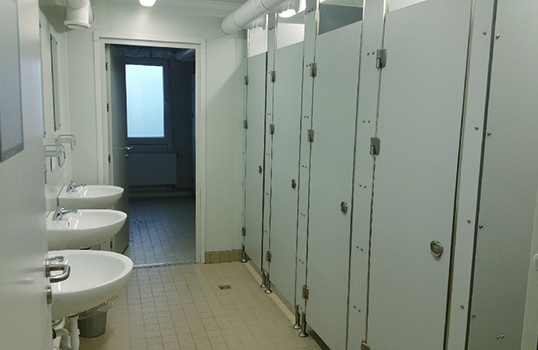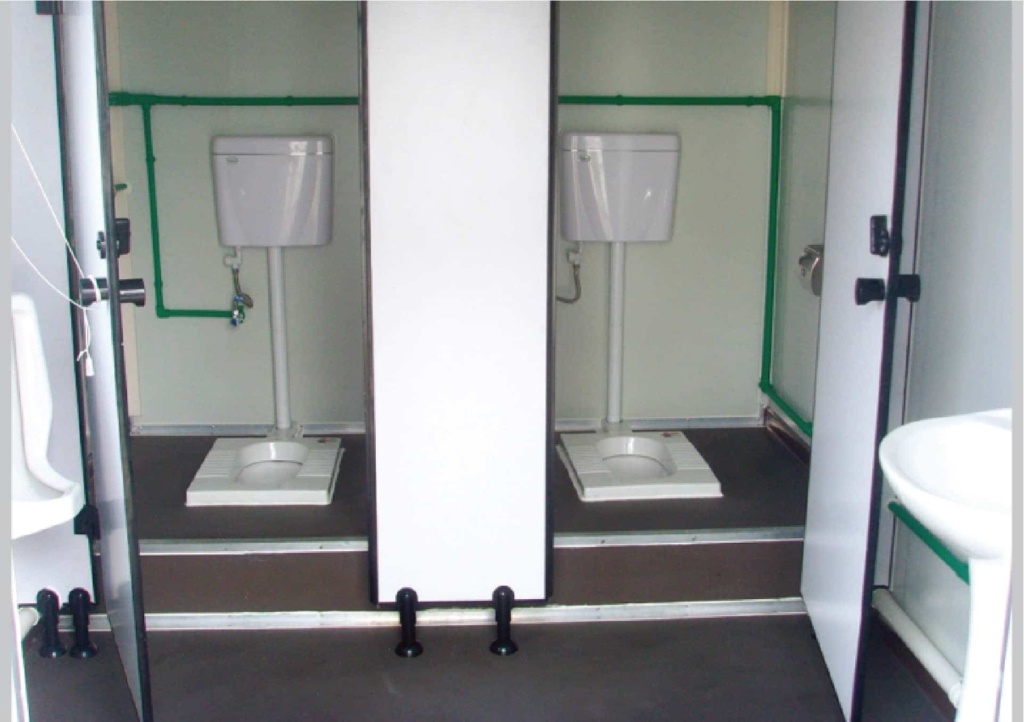I. Introduction
Sanitary containers, essential for maintaining cleanliness and hygiene standards, are specially designed containers used for storing and transporting items that require a high level of sanitation. They play a crucial role in various industries, including food, pharmaceuticals, and healthcare, where maintaining cleanliness is paramount to ensure product safety and public health.

II. Types of Sanitary Containers
Sanitary containers come in various types, each offering unique features and benefits suited for different applications.
1. Stainless Steel Containers:
- Features: Known for their durability, stainless steel containers are resistant to corrosion, making them ideal for long-term use in sanitary environments.
- Benefits: They are easy to clean, maintain hygiene standards, and can withstand high temperatures, making them suitable for food processing and pharmaceutical industries.
2. Plastic Containers:
- Features: Plastic containers are lightweight and cost-effective compared to stainless steel. They are available in various sizes and shapes to suit different needs.
- Benefits: These containers are easy to handle, resistant to chemicals, and can be easily sanitized, making them suitable for a wide range of sanitary applications.
3. Glass Containers:
- Features: Glass containers are non-reactive and do not absorb odors or flavors, making them ideal for storing and transporting sensitive materials.
- Benefits: They are transparent, allowing for easy visibility of contents, and can be easily cleaned and sterilized, ensuring sanitary conditions.
4. Disposable Containers:
- Features: Disposable containers are made from materials like paper, cardboard, or biodegradable plastics, designed for single-use applications.
- Benefits: They eliminate the need for cleaning and sanitizing, reducing the risk of cross-contamination, and are environmentally friendly when made from biodegradable materials.
Each type of sanitary container offers unique advantages depending on the specific needs of the application, providing flexibility and efficiency in maintaining sanitary standards.
III. Uses in Food Industry
Sanitary containers play a crucial role in the food industry, ensuring the safe transportation and storage of food products. These containers are specifically designed to meet strict sanitary standards and regulations, making them ideal for use in food-related applications.
- Transportation: They are used to transport a wide range of food products, including fresh produce, meat, dairy, and processed foods. Their design prevents contamination and maintains the integrity of the products during transit.
- Storage: These containers are also used for storing food products in warehouses, cold storage facilities, and distribution centers. They help maintain the freshness and quality of the food products, ensuring they are safe for consumption.
- Benefits: The use of sanitary containers offers several benefits in terms of food safety and regulatory compliance. They help prevent contamination, spoilage, and cross-contamination, reducing the risk of foodborne illnesses. Additionally, they help businesses comply with strict food safety regulations and standards, ensuring that their products meet the highest quality and safety requirements.

IV. Applications in the Pharmaceutical Industry
Sanitary containers are essential in the pharmaceutical industry, These containers are designed to meet strict health and safety standards, providing secure and hygienic storage and transportation solutions for sensitive materials.
- Raw Material Storage: Used for storing active pharmaceutical ingredients (APIs) and other raw materials in a controlled, hygienic environment.
- Product Transport: Ensures safe and contamination-free transport of finished pharmaceutical products between manufacturing, storage, and distribution points.
- Intermediate Storage: Provides temporary storage for semi-finished products during different stages of the manufacturing process.
- Sterile Solutions: Ideal for storing and transporting sterile solutions and reagents used in pharmaceutical production.
- Cold Chain Logistics: Supports the cold chain logistics necessary for vaccines and other temperature-sensitive pharmaceuticals, maintaining required temperatures during transport and storage.
V. Role in Chemical and Hazardous Material Transport
Sanitary containers play a crucial role in ensuring the safe handling and transport of chemicals and hazardous materials. These containers are specifically designed to prevent contamination and environmental hazards, offering features that are essential for the safe transportation of such materials.
- Sanitary Design: They are designed to be leak-proof and resistant to corrosion, ensuring that chemicals and hazardous materials are contained securely during transport. This design helps prevent spills and leaks that could lead to environmental contamination.
- Secure Sealing Mechanisms: These containers are equipped with secure sealing mechanisms, such as gaskets and locking lids, to prevent any accidental opening during transport. This feature ensures that the contents remain contained and prevents exposure to the environment.
- Material Compatibility: Sanitary containers are made from materials that are compatible with the chemicals and hazardous materials they are designed to transport. This prevents chemical reactions that could compromise the integrity of the container or pose a safety risk.
- Environmental Protection: They are designed to protect the environment from potential hazards posed by the materials being transported. They are often equipped with features such as double-walled construction and spill containment systems to prevent leaks and spills from reaching the environment.
- Compliance with Regulations: They are designed to comply with regulatory standards for the transport of chemicals and hazardous materials. This ensures that they meet the necessary safety requirements and are suitable for transporting such materials safely.
Sanitary containers play a critical role in ensuring the safe and secure transport of chemicals and hazardous materials, providing essential features that prevent contamination and environmental hazards.
VII. Cleaning and Maintenance Practices
Proper cleaning and maintenance are essential for ensuring the integrity and hygiene of sanitary containers. Follow recommended procedures to keep your containers in optimal condition.
1. Recommended Cleaning Procedures:
- Use a mild detergent and water solution to clean the interior and exterior of the container.
- Thoroughly rinse the container with clean water after cleaning to remove any soap residue.
- For stubborn stains or residues, use a non-abrasive cleaner and a soft-bristled brush.
- Sanitize the container regularly using a disinfectant approved for use on food contact surfaces.
- Pay special attention to areas prone to buildup, such as corners and crevices.
2. Importance of Regular Maintenance:
- Regular maintenance helps prevent corrosion, leaks, and other damage that can compromise the integrity of the container.
- It also helps ensure that the container remains in compliance with sanitation and safety standards.
- Regular inspections can help identify and address issues early, preventing costly repairs or replacements.
- Proper maintenance can extend the lifespan of the container, providing long-term cost savings and ensuring reliable performance.
By following recommended cleaning procedures and implementing a regular maintenance schedule, you can ensure that your sanitary containers remain in optimal condition, maintaining their integrity and hygiene for years to come.
VIII. Conclusion
In conclusion, sanitary containers play a crucial role in various industries, including food, pharmaceuticals, and chemical transport, by ensuring cleanliness, safety, and regulatory compliance. Stainless steel, plastic, glass, and disposable containers offer unique benefits suited for different applications, providing flexibility and efficiency in maintaining sanitary standards.
In the food industry, these containers are essential for safe transportation and storage, preventing contamination and ensuring compliance with food safety regulations. In the pharmaceutical industry, they help maintain the integrity of sensitive pharmaceutical products, ensuring their safety and efficacy. Moreover, in chemical and hazardous material transport, they are designed to prevent leaks and spills, protecting the environment and ensuring compliance with safety regulations.
Overall, the use of sanitary containers is vital for maintaining cleanliness, safety, and compliance in various industries, highlighting their importance in modern logistics and supply chain management.
CIMC Yang Zhou Base is a leading manufacturer of sanitary containers and various other standard and special logistics equipment. With years of experience in the industry, it focuses on the design, production and distribution of high-quality innovative products that meet the specific needs of customers. If you need high-quality and innovative logistics equipment, including refrigerated containers, cold chain equipment, containerized equipment integration, modular buildings, etc., База CIMC Ян Чжоу is your best choice. Welcome inquiries from customers all over the world and look forward to the opportunity to cooperate with you.
|


